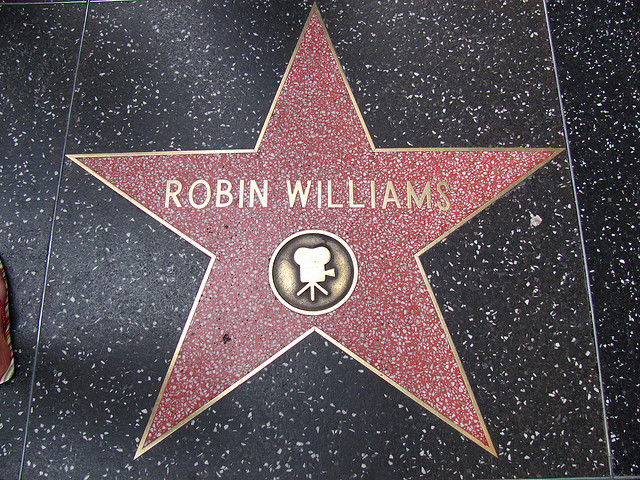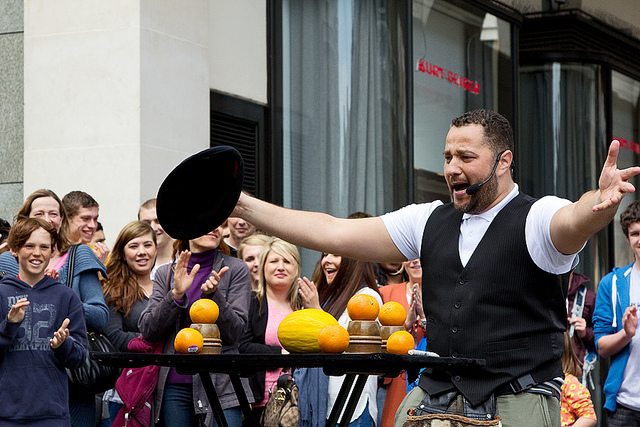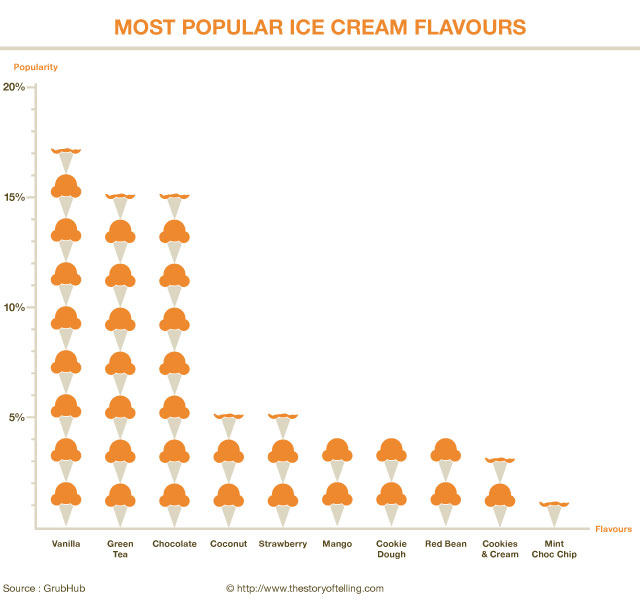Unlock the Magic in Your Story Now
Get the Free 20 questions to Ask Before Launching Your Idea workbook when you sign up for occasional updates.
Get the Free 20 questions to Ask Before Launching Your Idea workbook when you sign up for occasional updates.
Fridge Magnet Marketing
 Your plumber has probably earned his place on your fridge alongside the chimpanzee magnet your kids brought back from a school trip. His magnet is there because he’s the guy who came out within a couple of hours when that pipe in the laundry burst, causing chaos. You want this guy in your life and so you keep him there.
Your plumber has probably earned his place on your fridge alongside the chimpanzee magnet your kids brought back from a school trip. His magnet is there because he’s the guy who came out within a couple of hours when that pipe in the laundry burst, causing chaos. You want this guy in your life and so you keep him there.
The real estate agent’s fridge magnet, the one that was posted in your mailbox offering an all caps ‘FREE MARKET APPRAISAL’, followed by three phone numbers, has no place on your fridge.
It’s an unwelcome interruption, not a handy reminder.
Whoever gets closest to their customers wins, but it’s not possible to buy your way into people’s hearts, homes or increasingly their wallets—you have to earn the right to a place there.
Image by Chickpea.
Share this article
What Will Change Once The Word Gets Out?
 On the day after ‘the word gets out’ about your product or service, will you have a thousand news followers on Twitter?
On the day after ‘the word gets out’ about your product or service, will you have a thousand news followers on Twitter?
Will the kingmaker call?
Will your inbox have ten new client leads?
Will your stock be flying off the shelves?
Will your business be better?
Will your bank balance be healthy enough then?
Will your staff feel more valued?
Will your customers be happier?
Will you feel more worthy, fulfilled, calm, acknowledged or ————— (fill in the blank)?
We imagine everything magically falling into place in some distant tomorrow when the world finally gets to know about us.
Tomorrow and getting the word out is not your priority. Doing great work today is.
Image by Nathan Rupert.
Share this article
What Will Your Verse Be?
filed in Entrepreneurship
 One of my heroes died yesterday. Maybe he was one of yours too? Robin Williams wasn’t the kind of hero you are reminded of every day. You might remember him as you’re riding the train home one night and you smile when you see the words ‘Carpe Diem’ etched into a teenager’s forearm. Or when you hear a piece of music from a movie soundtrack on the radio. Or when the TV channels inevitably play Mrs Doubtfire trailers at Christmas.
One of my heroes died yesterday. Maybe he was one of yours too? Robin Williams wasn’t the kind of hero you are reminded of every day. You might remember him as you’re riding the train home one night and you smile when you see the words ‘Carpe Diem’ etched into a teenager’s forearm. Or when you hear a piece of music from a movie soundtrack on the radio. Or when the TV channels inevitably play Mrs Doubtfire trailers at Christmas.
Journalist Ty Burr tells the story about the time he met Williams one morning on a New York street, as they were both setting out for a jog. For a split second Ty saw the man before his brain processed who he was. The man (not the actor) smiled back until he saw the flicker of recognition cross Ty’s face, then he put on his celebrity armour.
The irony of the human condition is that we fear being invisible and yet we fear being seen. We want to feel like what we do matters, that our time here stood for something. And yet we know that when we stick our necks out we are opening ourselves up to criticism and failure.
Despite his genius Robin Williams was no exception, he experienced the fear of not being good enough as we all do. He once acknowledged “this idea that you’d better keep working otherwise people will forget.” It was that need to keep raising the bar that made him one of those rare actors who could make us laugh and cry in equal measure.
He cared about doing that. He knew it mattered. He understood that he was here to contribute a verse and that doing it meant facing his fear of failure. I’m glad he did.
What will your verse be?
Image by Loren Javier.
Share this article
Play To Your Strengths
 If you look hard enough at what’s going right (and sometimes wrong) in a business there are always lessons to be learned. Take the story of Tom the decorator who built a great business over many years, then suddenly seemed to lose his way. Part two of that story explains why Tom succeeded in the first place and why things have gone awry of late.
If you look hard enough at what’s going right (and sometimes wrong) in a business there are always lessons to be learned. Take the story of Tom the decorator who built a great business over many years, then suddenly seemed to lose his way. Part two of that story explains why Tom succeeded in the first place and why things have gone awry of late.
While Tom apprenticed as a decorator and knows a lot about colours and paint finishes and surface preparation, he actually doesn’t enjoy the solitary work of painting. Tom is a people person and a terrific salesman. He has a confident, firm handshake, knows how to look people in the eye and has their trust within minutes of meeting. Tom is also a brilliant organiser and manager. He knows how to hire the right man for the job and can give him very clear instructions. Tom has a way of making his team aware of the standard he expects and he commands their respect.
Tom is so good at selling that he has scaled his business rapidly and taken on more staff to do the work he doesn’t enjoy so much (although he never acknowledges this). Tom’s circumstances have changed lately. His cash flow is not what it was because he has just returned from a recent year-long overseas trip, so he’s not hiring a team to help with the jobs he gets during these first few lean months while he builds up his reserves of cash. But Tom is doing his business more harm than good. He is making a short term tactical decision and has abandoned the strategy that has served him so well in the past. Now he’s begun to take shortcuts, to look for quick wins and most important of all he’s stopped playing to his strengths.
Tom’s gift was never that he applied paint better than any other decorator in town. His gift was always that he knew how to make people feel like they mattered. He just didn’t realise that’s what he did for a living.
The irony is that while we spend time on our business goals, working hard to hit targets we set; sometimes we can’t explain how we did it, why it worked or how we really contributed to making it all happen. It’s never been more important to take time to work out who you are and why that matters to your business.
Image by Chris Beckett.
Share this article
Don’t Change Your Pitch, Understand Their Story
filed in Marketing, Storytelling, Strategy
 Back in the days of stay-at-home Mums and morning newspaper deliveries, a memorable tagline on the box (or a coveted toy inside), was enough of a sales pitch to sell us a ton of breakfast cereal. Frosted Flakes were Grrreat because Tony the Tiger said so. And if Neil Armstrong, Buzz Aldrin and Michael Collins ate Kellogg’s during their Apollo 11 trip to the moon, then it must be good enough for us too.
Back in the days of stay-at-home Mums and morning newspaper deliveries, a memorable tagline on the box (or a coveted toy inside), was enough of a sales pitch to sell us a ton of breakfast cereal. Frosted Flakes were Grrreat because Tony the Tiger said so. And if Neil Armstrong, Buzz Aldrin and Michael Collins ate Kellogg’s during their Apollo 11 trip to the moon, then it must be good enough for us too.
Forty years ago consumers didn’t obsess about what the label said was inside the box. In a post-depression world we were just glad to be able to put food on the table and to outsource some of our decision-making. We trusted corporations to know best and do the right thing by us. But times have changed and when an established company like Kellogg announces that they have reduced salt levels in Corn Flakes and Rice Bubbles in Australia by 20% in 2012, which translates to a reduction in salt levels of up to 59% across their cereals. We can’t help but question more and trust less.
Sales of breakfast cereals are declining. We have fallen out of love with carbs and more in love with protein and a bowl of cereal is no longer healthy or convenient enough for savvy, time poor consumers. We are taking our health into our own hands. What we once believed has changed and that’s impacted what we do and what we buy. So when the customer story changes what’s a business to do?
Breakfast cereal manufacturers are attempting to change the sales pitch for cereal. They are adding protein to flakes of corn and creating breakfast bars and drinks that we can consume on-the-go. The packaging and the copy (to position cereal as a late night snack food, not just breakfast), are being modified but for the most part the nutritional composition is the same. The sales pitch is changing, but the story of cereal is no different from the one W.K. Kellogg told in 1906.
In an increasingly competitive marketplace, it’s not enough to change the pitch to suit the trend of the moment without changing your story. Because if your customers don’t believe what your company believes, then they can’t and won’t ‘buy in’ to that story.
Real change, innovation and market disruption in any business doesn’t begin in the boardroom, innovation lab or with the ad agency. Nor does it come from focusing on the competition. It starts with what your customers believe—with their story. And when your story aligns with their worldview that’s when the magic happens.
Image by Jo Christian Oterhals.
 What Donald Draper wouldn’t have given to be an ‘ad man’ in 2014. No more
What Donald Draper wouldn’t have given to be an ‘ad man’ in 2014. No more  There was a palpable buzz when one of the most gifted leaders in retail, Ron Johnson—the guy who led the creation of the Apple Store experience, took on the role of CEO at the hundred-year-old company J.C. Penney. All eyes were on him. The business world wanted to know how he was going to transform the stodgy image of their department stores. Struggling retailers watched and waited to see if Johnson was the keeper of the secret that would save bricks and mortar retail. When Johnson announced his vision for the company stock prices soared. He wanted to create small store experiences within the large department stores and a square where events could happen. Johnson wanted to make the department store a place where people came to be, not just to shop.
There was a palpable buzz when one of the most gifted leaders in retail, Ron Johnson—the guy who led the creation of the Apple Store experience, took on the role of CEO at the hundred-year-old company J.C. Penney. All eyes were on him. The business world wanted to know how he was going to transform the stodgy image of their department stores. Struggling retailers watched and waited to see if Johnson was the keeper of the secret that would save bricks and mortar retail. When Johnson announced his vision for the company stock prices soared. He wanted to create small store experiences within the large department stores and a square where events could happen. Johnson wanted to make the department store a place where people came to be, not just to shop. We’re coming unstuck with the gift that is social media and here’s why. We often forget that social media is not the same as advertising, that it’s not just a collective of platforms we use to blast messages at people. Then there is our obsession about the tactics. The question I hear asked of social media experts every day is;
We’re coming unstuck with the gift that is social media and here’s why. We often forget that social media is not the same as advertising, that it’s not just a collective of platforms we use to blast messages at people. Then there is our obsession about the tactics. The question I hear asked of social media experts every day is; Almost one in five people who order an ice cream in the U.S. today will order vanilla.
Almost one in five people who order an ice cream in the U.S. today will order vanilla.
 We’ve been using the same painter and decorator for years. He’s been with us amid the chaos of three moves and two home renovations. Tom was a young, ambitious bloke when we first met. He was keen to offer a better than average service and at age 25 his goal of doing that was paying off. He had built a thriving business by delivering exceptional service and he was already employing three painters.
We’ve been using the same painter and decorator for years. He’s been with us amid the chaos of three moves and two home renovations. Tom was a young, ambitious bloke when we first met. He was keen to offer a better than average service and at age 25 his goal of doing that was paying off. He had built a thriving business by delivering exceptional service and he was already employing three painters.